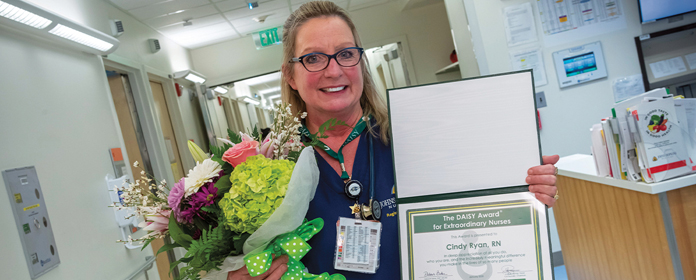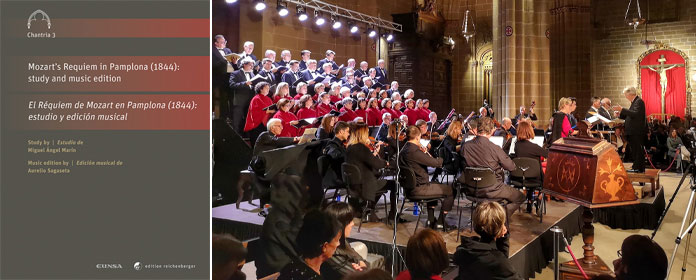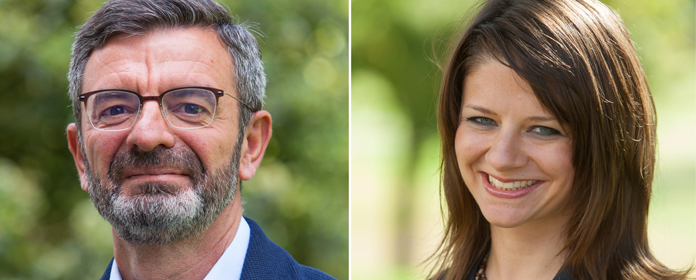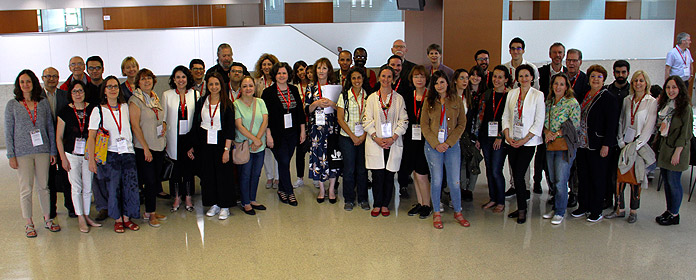"If scientific advances in health reach citizens, it will be easier to convince them of the need to invest in research medical."
Antonio M. Bañón, professor at the University of Almería, spoke at the XVIII congress of the European association of Languages for Specific Purposes, organized at the Institute for Culture and Society
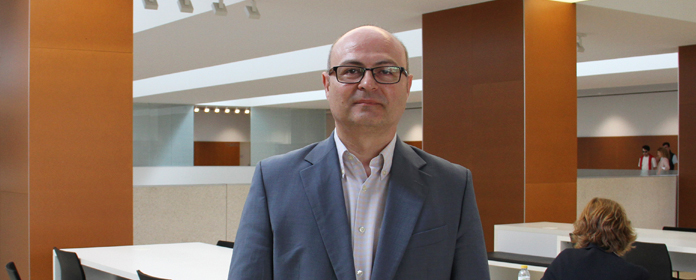
PHOTO: Natalia Rouzaut
Antonio M. Bañón, professor at the University of Almeria, was one of the main speakers at the XVIII congress of the association European Languages for Specific Purposes (AELFE). The meeting was organized by the project 'Public discourse' of the Institute for Culture and Society (ICS), the research center in Humanities and social sciences of the University of Navarra.
Professor Bañón spoke about theanalysis of speech applied to the field of health. In his discussion paper he presented an overview of the programs of study on this issue, as well as practical guidelines that the research from Linguistics on speech and health has had or should have in the future.
-
In your discussion paper you have commented that there are three levels of relationship between health and speech. What are they?
The speech is a demonstration of health or disease, it is tool of health or disease and it is a manifestation of a certain social construction of health and disease. Possibly, the most worked line is the first one. Words can make you sick: it has been demonstrated that many depressions have their origin in an aggressive speech , in verbal violence. It can also heal; psychotherapy is a significant example of how conversation and listening can help. Regarding the third level, it is worth mentioning that concepts such as 'metabolically healthy obese', 'pre-sick'... are appearing, which show that health and illness are in a process of reflection, constitution and reconstitution at plenary session of the Executive Council .
-
What are the most frequent health messages in the public sphere?
The starting point for reflection could be that we have improved a lot at knowledge, but often only from a quantitative point of view. For example, we think that having a health app on our cell phone assures us that we are taking care of ourselves, and this is a perverse point. We are evolving, but at the same time there is a lot of confusion.
-
How have we improved?
The advertising is less aggressive than in the past and aspects such as tobacco or alcohol are now regulated. We have also improved in preventive discourses, which are gaining space. Many schools are also teaching to properly value what it means to be healthy. The preventive speech is gaining space.
However, we also think we know more about health than we really do. This is very clear in the case of rare diseases. We hear the concept more frequently, often associated with the commitment of public people. However, if we try in depth, we do not find a true knowledge of what a rare disease is, nor the ratio, nor the consequences... That kind of "schizophrenia" of knowledge is a terrain to be explored.
-
A fundamental source from which we receive health messages is the media. What is your general assessment of the coverage?
The goal of the media with regard to health should be the literacy of society. How? In connivance, in partnership with other actors. That is why it is important to generate common spaces between journalists, researchers, physicians, nurses... A second complementary goal would be to avoid sensationalism, so that the media and their managers are aware of the consequences that the messages of this subject can have on health and disease.
-
How can citizens defend themselves against these sensationalist and/or misleading messages?
To simplify, we can cite two keys to discern whether the message that reaches us is adequate or inadequate: the sources and the time. The message must come from a credible source . And if we are told that a treatment whose research has cost decades is going to be applied soon, something is wrong. Sometimes, the media mismanage the representation of time because of the passion to transmit innovation. By this, I do not mean that progress in medical research should not be transferred to society. It is important that progress does not remain only in the medical community: if it reaches the citizens, it will be easier to convince them of the need to invest in medical research .
-
Apart from the media, "Doctor Google" provides us with all the information we want about any pathology, health advice... How has our relationship with the doctor changed?
Some have not been able to overcome their own and other people's overinformation because it is very difficult to manage. It does not depend on the Degree of knowledge, but on the style with which you transmit it. It is a problem of courtesy, of communication.... If you find someone on enquiry who is very clear about what they have and what they want, the relationship becomes complicated. Another thing is that there is a exchange of opinions, a enquiry, a reflection... Relevant scientific journals have dealt precisely with the idea of the expert patient. Some editorials wonder whether it is a dream or a nightmare. When the amount of knowledge with which we go to the doctor serves to improve the exchange of information in diagnosis and treatment, it is a dream. But it can become a nightmare if the knowledge is mismanaged.
-
In this sense, how is it possible to improve doctor-patient communication processes?
There used to be people who only went to the doctor for treatment. And there are still people who just want to know what they need to take to be cured, they are not looking for anything else. But others do demand more information. The problem is that in some communities there is a limit of minutes of attention per patient. It is complicated to ask them to solve something with relative urgency and at the same time be literacy educators for the people in front of them. If we ask primary care professionals to take on too much responsibility in this regard, we may be overloading them. Hospitals, although also short of time, do have the necessary infrastructure to host conference, common spaces.... But the responsibility does not only lie with the healthcare professionals: if there are no health literacy areas, patients should request or promote them.
-
How can healthcare professionals be trained in these tools?
They have to ask for training in patient communication. Unlike other countries, in Spain there are few subjects in the curriculum. Right now, it is the doctors who have a special sensitivity who ask for it or even train themselves autonomously in such interesting matters as communicative accommodation. This is a British sociolinguistic theory that suggests knowing the interlocutor and adjusting the message so that he/she understands you well. Age, training, language are variables to be taken into account. For example, if you meet someone who does not master the language of reference letter on the spot, the status becomes even more difficult because you have to add the linguistic communicative ability to the informative skill .
-
To what extent does this effort to accommodate the message influence the healing process?
It is well studied from the concept core topic of adherence to treatment. What we really want is not just to establish a diagnosis and provide a treatment. Success comes when the patient follows the physician's indications, takes the medication, attends the check-ups.... When they understand you well and you convince them that it is the best thing to do, there is adherence to the treatment. Otherwise, we will have a problem of subject medical, social and even economic. If the patient is not cured, it is normal for the status to become more complicated and have to return to the hospital. The cultural aspect must also be taken into account (e.g. differences in matters such as blood collection).
-
How are all these lines on speech and health being contemplated in the current research ?
The time has come to start analyzing disease segments. From my point of view, the most complex challenge is to apply the analysis of speech to rare diseases. It implies a lack of knowledge, lack of hope of curative treatment, not only palliative.... We need to generate more communication corpus on health in the three dimensions we mentioned. Compared to what is happening in other countries, we still have a lot of research to do on technical medical language and what strategies are used to disseminate it. Another challenge is to seek a greater presence in particularly sensitive areas of medicine and health, such as palliative care. We must also have more presence in organ donation. We must interview family members who agree to donate organs in the event of the death of a loved one and people involved in live transplants. Knowing the speech, the sensations, the underlying emotions could be very useful.

